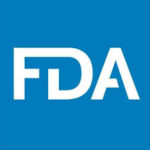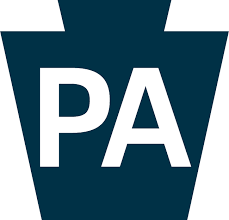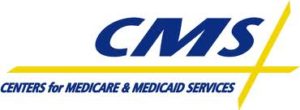PA Health Policy Update for the Week of June 1
 Beginning today, SNAP is expanding its regular COVID-19 updates to encompass a broader scope of Pennsylvania state health policy endeavors. As efforts to address COVID-19 prove more effective and the state moves from focusing almost exclusively on the public health emergency back to its usual, much broader array of health policy concerns, we hope this update will be a useful resource on matters of importance to the hospital community. Please feel free to share this newsletter with others in your organization or to send us the email addresses of those you think might be interested and we will send it directly to them.
Beginning today, SNAP is expanding its regular COVID-19 updates to encompass a broader scope of Pennsylvania state health policy endeavors. As efforts to address COVID-19 prove more effective and the state moves from focusing almost exclusively on the public health emergency back to its usual, much broader array of health policy concerns, we hope this update will be a useful resource on matters of importance to the hospital community. Please feel free to share this newsletter with others in your organization or to send us the email addresses of those you think might be interested and we will send it directly to them.
The following is an update of selected state health policy developments in Pennsylvania for the week of June 1-4, 2021. (Some of the language used below is taken directly from state documents.)
Governor Wolf
The Wolf administration has issued a reminder to Pennsylvanians that all businesses, events, and venues can return to 100 percent capacity with the lifting of COVID-19 mitigation orders starting Monday, May 31 at 12:01 a.m. The current order requiring masks for unvaccinated and partially vaccinated individuals will remain in place until June 28 or when 70 percent of Pennsylvanians age 18 and older get their second dose of Pfizer or Moderna vaccine or the single-dose Johnson & Johnson vaccine, whichever comes first. Individuals are still required to wear masks on planes, buses, trains, and other forms of public transportation traveling into, within, or out of the United States and in U.S. transportation hubs, such as airports and stations. Individuals should still follow guidance at workplaces, local businesses, long-term-care facilities, hospitals, prisons, and homeless shelters. See the reminder here.
State Finances
- The Department of Revenue announced that state General Fund collections for May totaled $3.9 billion, which was $1.6 billion, or 65.4 percent, more than projected. This significant increase is attributed to the one-month delay for personal income tax collections. Personal income tax revenue in May was $1 billion above estimate. So far this year the state has collected $2.9 billion, or 8.5 percent, more than anticipated.
- Last week the state Independent Fiscal Office (IFO) released its updated FY 2021-2022 revenue estimate. In contrast to FY 2020-2021, which is ending on a strong note, the IFO projects that FY 2021-2022 will be more challenging once all of the COVID-19 federal funds are exhausted. The IFO projects that the state’s economy and revenues generated from various sources will revert to the path they were on prior to COVID-19. The IFO forecast estimates that Pennsylvania will collect $37.96 billion, a decline of $2.152 billion from FY 2020-2021. Learn more from the presentation given by Matthew Knittel, the IFO’s director.
 In the Legislature
In the Legislature
- A bill already passed by the state Senate and currently before the House would give parents the option of having their children repeat their current grade in school because of the challenges children have faced learning remotely. The Johnstown Tribune-Democrat tells the story.
- A bill has been introduced in the Senate that would permit young people 14 years of age and older to receive COVID-19 vaccines without the consent of their parents. KDKA provides further information.
- For a comprehensive summary of health care legislation currently under consideration in the Pennsylvania General Assembly, contact SNAP at info@pasafetynet.org.
Department of Health
- The Department of Health has issued an advisory with information and reporting requirements about patients presenting with myocarditis and pericarditis after receiving Pfizer or Moderna COVID-19 vaccines.
- The Department of Health circulated a reminder to long-term-care facilities with information on CMS’s requirement to report to the federal government on COVID-19 vaccinations and therapeutic treatments they provide. Facilities also are required to educate staff and residents on the importance of getting vaccinated.
- The Department of Health issued a health advisory on COVID-19 treatment options that incorporates updated guidance from the FDA on monoclonal antibody treatments and combination therapies.
- The Department of Health revised its order regarding skilled nursing facility data reporting requirements to require weekly rather than daily reporting. While facilities will be required to complete data surveys on a weekly basis, the data they submit will be cumulative. See the Department of Health announcement here and the full amended order here.
- The Department of Health revised its interim guidance for skilled nursing facilities during COVID-19 to incorporate changes in data reporting requirements and other recently issued federal and state guidance.
 COVID-19: By the Numbers
COVID-19: By the Numbers
- The daily number of new COVID-19 cases continues to decline and has been in three digits for seven days in a row.
- The number of COVID-19 deaths is declining but not as swiftly as the number of cases.
- For the week from May 21 through May 27 the state’s overall COVID-19 test positivity rate was 3.8 percent, down from 4.5 percent last week and 5.5 percent the week before.
- Twenty-eight counties had a positivity rate lower than five percent, up from 12 last week, and no counties had a positivity rate greater than 20 percent for the fifth consecutive week.
- Ten counties (Cameron, Clarion, Elk, Forest, Fulton, Montour, Potter, Snyder, Sullivan, and Warren) are currently experiencing low levels of community transmission of COVID-19, up from four last week; 56 counties are experiencing moderate levels of community transmission, down from 58 last week and but up from 41 two weeks ago; and only one county (Wyoming) is currently experiencing a substantial level of community transmission, down from five counties last week and 22 the week before.
- The numbers of Pennsylvanians hospitalized with COVID-19 fell 55 percent from May 1 to June 1; the number on a ventilator fell 47 percent from May 1 to June 1; and the number in hospital intensive care units fell 49 percent from May 1 to June 1.
- 4.8 million Pennsylvanians have been fully vaccinated against COVID-19, according to the state’s COVID-19 dashboard. Growth in this number slowed significantly over the past week. Another 709,000 have been vaccinated in Philadelphia. According to the state, 54.7 percent of Pennsylvanians 18 years of age and older are now fully vaccinated and 58.7 percent of the entire population has now received at least the first dose of a vaccine.
- Governor Wolf has stated that Pennsylvania needs to reach 70 percent of adults vaccinated before he will lift the state’s remaining mask mandates.
Department of Human Services
- On May 29, 2020, Governor Wolf signed Act 24 of 2020, which allocated funding from the federal CARES Act to assist providers with COVID-19-related costs they incurred between March 1, 2020 and November 30, 2020. Providers that accepted Act 24 funding agreed to provide documentation to DHS and were required to submit an Act 24 cost report through a web-based portal between December 9, 2020 and April 30, 2021. With this in mind, DHS’s Office of Long-Term Living (OLTL) has asked providers to take the following actions:
- Review the list of providers. OLTL has compiled a list of providers that received Act 24 funding but for which it has no record of submission of a cost report or the return of funds. Organizations on this list should complete an Act 24 cost report and submit it to RA-PWOLTLCOVID-19@pa.gov no later than Friday, June 11, 2021. The applicable cost reports can be found here. Those that believe they submitted an Act 24 report yet are on this list should forward a screenshot of their submission to RA-PWOLTLCOVID-19@pa.gov.
- Return Unused Funding. Providers that prefer not to complete and submit a cost report can return their Act 24 funding to OLTL by sending a check with a cover letter to OLTL indicating that the check is for the return of CARES Act 24 funding they did not use. Checks should be made payable to the Pennsylvania Department of Human Services and sent to the Office of Long-Term Living, P.O Box 8025, Harrisburg PA 17105-8025, Attn: Daniel Sharar. Providers should include their EIN on the memo line of the check to ensure that refunds are traceable to the correct provider.
Providers that fail to submit a cost report or return their funding by the deadline will be deemed to have no COVID-related expenses and the state will proceed to recoup the Act 24 funding that was distributed to them.
- DHS’s Office of Medical Assistance Programs has issued a notice advising all county administrators, brokers, and all contracted Medical Assistance Transportation Program (MATP) agencies of updated guidance to ensure the safe provision of non-emergency medical transportation services to Medical Assistance beneficiaries during the COVID-19 public health emergency. The announcement directs the affected parties to federal CDC guidance for further information. See the DHS announcement here.
- The Office of Medical Assistance Programs has posted a notice informing individuals who are eligible to participate in the Medical Assistance Transportation Program but who can provide or arrange for transportation assistance on their own that it has temporarily increased the mileage rate for the remainder of the COVID-19 pandemic. See the notice here.
 Pennsylvania Health Care Cost Containment Council
Pennsylvania Health Care Cost Containment Council
PHC4 has published its annual report on the financial performance of the state’s acute-care hospitals. Among the highlights (taken directly from a PHC4 news release):
- Uncompensated Care: The statewide percentage of uncompensated care to net patient revenue increased from 1.72% in FY19 to 1.73% in FY20. The foregone dollar value for statewide uncompensated care has decreased from $820 million in FY19 to $809 million in FY20.
- Net Patient Revenue: The revenue hospitals received for patient care decreased 2.0% during FY20. Statewide net patient revenue was $46.8 billion during FY20, making up 91% of statewide hospital total operating revenue.
- Operating Margin: Statewide operating income decreased from $2.8 billion in FY19 to $1.9 billion in FY20. As a result, the statewide average operating margin decreased from 5.61% in FY19 to 3.73% in FY20. Total operating revenue increased to $51.5 billion and operating expenses increased to $49.6 billion in FY20.
- Total Margin: The statewide total margin realized by the hospitals decreased by 2.70 percentage points, from 6.63% in FY19 to 3.93% in FY20.
To learn more, go here for links to the PHC4 news release about the report, downloadable data, and the report itself.
Around the State
- Philadelphia has added COVID-19 to its list of vaccines for which children do not need parental consent under a new Philadelphia Board of Health regulation.
- In the face of declining COVID-19 cases, Philadelphia lifted most of its COVID-19 restrictions, including density limits, maximum capacity limits, and distancing rules, on Wednesday, June 2.
- The city’s indoor mask mandate and 11 p.m. last call for dining orders will continue to be enforced until its Department of Public Health reviews the state of the pandemic and may drop those restrictions on Friday, June 11, according to a city news release. It was previously announced that the city would lift restrictions on Friday, June 11.
- Berks County has the third highest rate in the state for children suffering from lead poisoning. It is particularly a problem in the city of Reading and in communities of color. Local officials and doctors are coming together to try to do something about it. WFMZ tells the story.
- Penn State is offering incentives to students and staff to get vaccinated: cash prizes, book store gift certificates, and a football signed by coach James Franklin. The Centre County Times offers the details.
- The Delaware County Council met in person for the first time in 14 months, the Delaware County Daily Times reports.
- Erie’s city hall has reopened after a year, according to GoErie.
- The number of flu cases in Pennsylvania fell 97 percent from last year. The AP offers the facts and figures.
- Eighteen Pennsylvania colleges and universities (so far) are requiring students and staff to have COVID-19 vaccines for the fall semester. Scroll down this link to find the list.
- Most hospitals, on the other hand, are holding off on imposing such requirements, PennLive reports.
Stakeholder Events
- Medical Assistance Advisory Committee – Managed Care Delivery Systems Subcommittee Meeting
June 10 at 10:00 a.m.
Meeting number (access code): 132 168 3592
Meeting password: Managed
Join by phone: +1-408-418-9388 United States (Toll)
- Medical Assistance Advisory Committee’s Consumer Subcommittee Meeting
June 23 at 1:00 p.m.
- Medical Assistance Advisory Committee Meeting
June 24 at 10:00 a.m.
- DHS Office of Long-Term Living – Financial Management Services Meeting
June 28 at 11:00 a.m.
The purpose of this meeting is to discuss upcoming changes in the administration of financial management services under the Community HealthChoices, OBRA Waiver, and Act 150 programs. Representatives from the Office of Long-Term Living and Community HealthChoices managed care organizations will discuss the upcoming changes. Interested parties can join the meeting in the following ways:
From the meeting link:
https://pa-hhs.webex.com/pa-hhs/j.php?MTID=m15e2e495a802f00df6fa38c9e645237d
By meeting number:
Meeting number (access code): 132 280 2499From a mobile device (attendees only):
1-408-418-9388,,1322802499## United States Toll
1-202-860-2110,,1322802499## United States Toll (Washington D.C.)
By phone:
+1-408-418-9388 United States Toll
+1-202-860-2110 United States Toll (Washington D.C.)
Meeting password: Stakeholde
From a video system or application
Dial 1322802499@pa-hhs.webex.com
You can also dial 173.243.2.68 and enter your meeting number
 Pennsylvania Governor Tom Wolf has nominated Alison Beam to be Secretary of the state’s Department of Health.
Pennsylvania Governor Tom Wolf has nominated Alison Beam to be Secretary of the state’s Department of Health. Governor Wolf also has appointed Dr. Wendy Braund to be the state’s Interim Acting Physician General. Dr. Levine currently serves in that capacity as well. Dr. Braund, currently the COVID-19 response director in the state’s Department of Health, earned a master’s degree in public health from Johns Hopkins and an M.D. from the Penn State College of Medicine.
Governor Wolf also has appointed Dr. Wendy Braund to be the state’s Interim Acting Physician General. Dr. Levine currently serves in that capacity as well. Dr. Braund, currently the COVID-19 response director in the state’s Department of Health, earned a master’s degree in public health from Johns Hopkins and an M.D. from the Penn State College of Medicine. Over the weekend, House Speaker Michael Turzai changed the House of Representatives’ session schedule to hold a non-voting session day today and a voting session day tomorrow in an effort to enable Republicans to move forward with relief efforts for businesses related to the COVID-19 crisis. There has been speculation that if a quorum is present the Speaker may seek to suspend temporary House rules permitting remote voting to ease the passage of Republican-sponsored relief measures for businesses affected by limits on their ability to operate during the COVID-19 emergency. The House also has canceled its session for Wednesday and Thursday of this week.
Over the weekend, House Speaker Michael Turzai changed the House of Representatives’ session schedule to hold a non-voting session day today and a voting session day tomorrow in an effort to enable Republicans to move forward with relief efforts for businesses related to the COVID-19 crisis. There has been speculation that if a quorum is present the Speaker may seek to suspend temporary House rules permitting remote voting to ease the passage of Republican-sponsored relief measures for businesses affected by limits on their ability to operate during the COVID-19 emergency. The House also has canceled its session for Wednesday and Thursday of this week. Children’s Health Insurance Program
Children’s Health Insurance Program Department of Health and Human Services
Department of Health and Human Services The FDA has released guidance on its
The FDA has released guidance on its  MACPAC has written to CMS administrator Seema Verma to express its concern that the manner in which CMS has chosen to distribute $30 billion of the $100 billion designated in the CARES Act for hospitals and health care providers “…does not account for the real and pressing concerns of safety-net providers that are on the frontlines of serving the nation’s poorest and most vulnerable people…” MACPAC also asks Ms. Verma to “…ensure that safety-net providers, including hospitals considered deemed disproportionate share hospitals (DSH) for the purpose of Medicaid payment…children’s hospitals, and other providers serving Medicaid and other low-income patients have access to federal funds made available through the CARES Act without delay.” See the MACPAC letter
MACPAC has written to CMS administrator Seema Verma to express its concern that the manner in which CMS has chosen to distribute $30 billion of the $100 billion designated in the CARES Act for hospitals and health care providers “…does not account for the real and pressing concerns of safety-net providers that are on the frontlines of serving the nation’s poorest and most vulnerable people…” MACPAC also asks Ms. Verma to “…ensure that safety-net providers, including hospitals considered deemed disproportionate share hospitals (DSH) for the purpose of Medicaid payment…children’s hospitals, and other providers serving Medicaid and other low-income patients have access to federal funds made available through the CARES Act without delay.” See the MACPAC letter  Governor Wolf
Governor Wolf Pennsylvania Department of Health
Pennsylvania Department of Health CMS has posted a fact sheet explaining to health care provider
CMS has posted a fact sheet explaining to health care provider  A new update outlines
A new update outlines  The Department of Human Services (DHS) has published a reminder that
The Department of Human Services (DHS) has published a reminder that  The Department of Health and Human Services has provided guidance to states asking them to take immediate action to
The Department of Health and Human Services has provided guidance to states asking them to take immediate action to  The Department of Drug and Alcohol Programs (DDAP) has issued a document clarifying the state’s response to federal guidance on the disclosure of patients’ substance abuse disorder records during the telehealth process. See that policy clarification
The Department of Drug and Alcohol Programs (DDAP) has issued a document clarifying the state’s response to federal guidance on the disclosure of patients’ substance abuse disorder records during the telehealth process. See that policy clarification  Since yesterday, the Department of Human Services has issued the following four new guidance documents:
Since yesterday, the Department of Human Services has issued the following four new guidance documents: Federal
Federal  The following summary of PA legislative actions was compiled by Cynthia Fernandez of Spotlight PA and Gillian McGoldrick of Lancaster Online.
The following summary of PA legislative actions was compiled by Cynthia Fernandez of Spotlight PA and Gillian McGoldrick of Lancaster Online. CMS Catastrophic Plan Coverage Guidance
CMS Catastrophic Plan Coverage Guidance